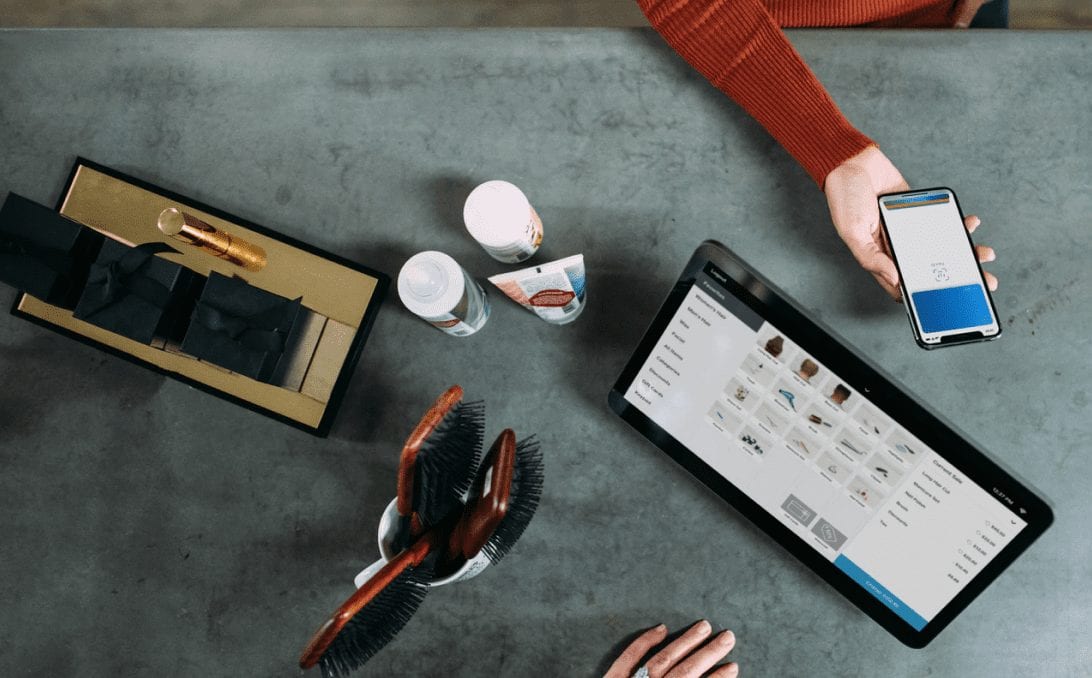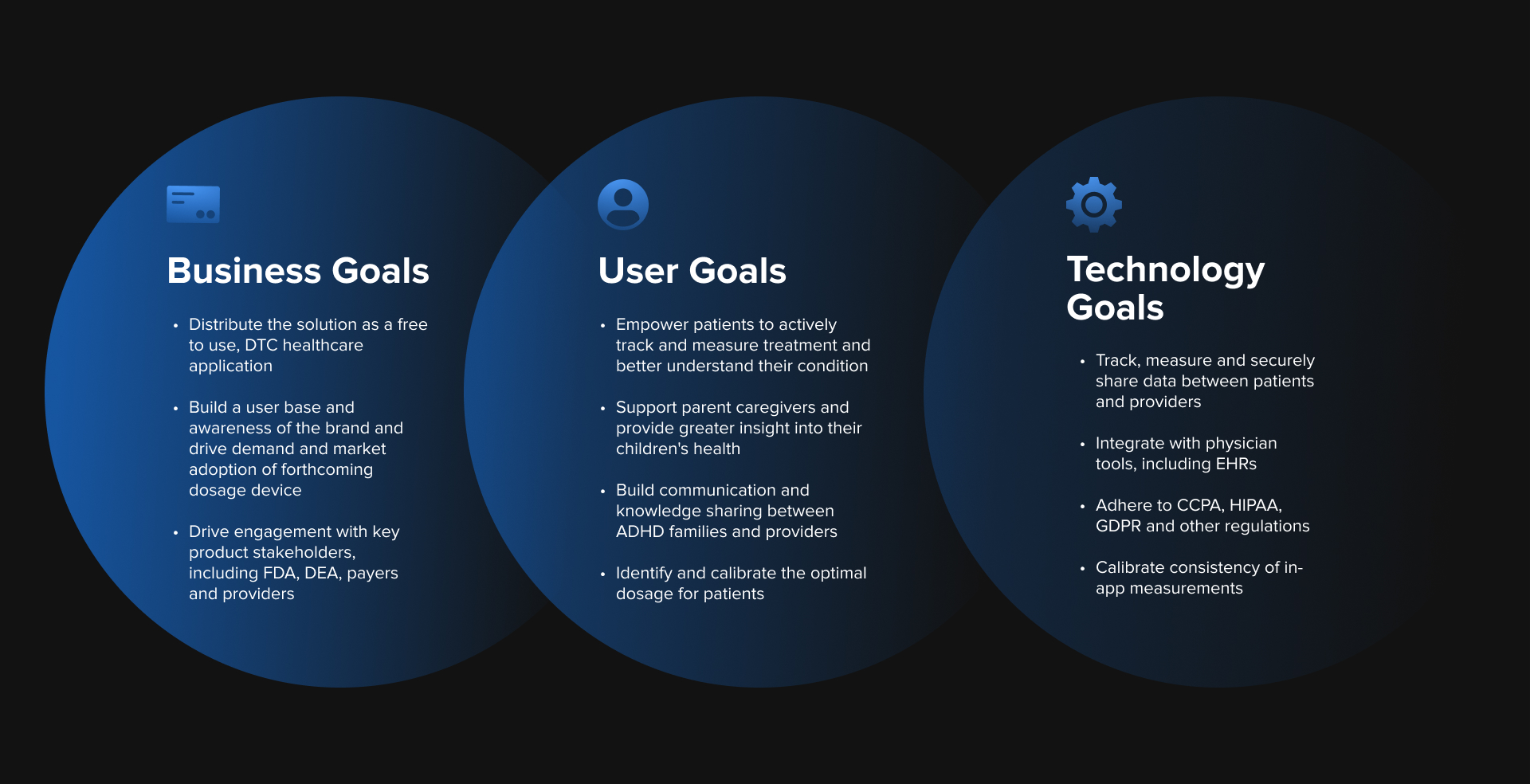Overview
Our client is pioneering proprietary flexible and individualized dosing technology of oral medications formulated as microparticles. Spun out from a venture hub of an international pharmaceutical company, our client’s mission is to facilitate greater medication adherence, self-empowerment and convenience for patients through their hardware device and companion digital health solutions. They are especially focused on developing individualized dosing for chronic diseases that create significant pressure on patients and healthcare systems, such as ADHD, pain management and immunosuppression.
- Crafted a prototype of ADHD dosing companion application in 3 months
- Long-term product vision creation supporting and streamlining client’s market launch
- Concepted a game based on Continuous Performance Test for validation the efficacy of ADHD medication
- Developed value proposition and respective product use cases
The idea
Our client connected with us to support their ambition of becoming the first-ever closed-loop care system for ADHD. Their vision is centered on better connecting healthcare providers, parents and children patients. One of the biggest challenges for ADHD medication is titration. Identifying the optimal medication dosage for kids is especially challenging because they weigh much less than adults, and their weight typically fluctuates more significantly. Moreover, as with adults, each has unique biochemistries and can respond to treatment differently. As a result, the process of dose adjustment can be very slow, with providers often lacking the data they need for informed decision-making.
To solve this challenge and help patients and their parents better manage and adhere to prescribed treatments, our client creates an individualized and intuitive dose titration device. The client wanted a concept for a digital therapeutic, personalized ADHD tracking application to start building a community of families managing ADHD, monitor the efficacy of current therapies and understand how their digital health solutions would be used.
One of the challenges of including young children with ADHD in the treatment process is patient engagement. To boost adherence, our client’s solution would include a fun game that children could play. While a source of entertainment, this game is modeled after clinical performance tests and would be a verified method of understanding the impact of medication while helping families cope with everyday condition management and treatment.
Project
We divided the project into three broad phases: research, concept and design. We started with understanding more about our client’s company, their users and goals.
We also did a digital capabilities assessment to understand their current software architecture and best prepare the platform for future integration into their product ecosystem. For both our client’s company and us as their strategic partner, this was especially important as we would later support engineering activities to develop the full MedTech solution.
From here, we dove into user research and interviewed children with ADHD, their parents and pediatricians. This enabled us to understand common needs and pain points across stakeholders and create personas. For parents, we found they needed better visibility into the effect of medication, side effect tracking, the importance of routines in maintaining adherence, desire to have a holistic overview of child’s wellbeing, and tools to engage their children in the treatment. Children needed a better understanding of the medication side effects, identification with others with the condition, progress tracking and motivation tools.
Some additional important findings we uncovered included:
- The biggest issue of the diagnosis and early titration process is the logistics of helping parents and teachers successfully navigate complex medication bureaucracies and procedures
- Accepting the condition and overcoming shame is part of the treatment journey
- We lack objective tools for measuring holistic wellbeing of children far too often relying on classroom grades
- Families develop their own coping mechanisms.
Based on these insights, we crafted a preliminary value proposition. Our focus was creating a personal tracker app for families managing ADHD to support patients. We wanted to help kids accept their condition, engage and grow with treatment. Likewise, we aimed to enable parents to observe progress and visualize results through personalized reports.
This enabled us to ideate the concept and design phases, including workshops, wireframing, conceptualization, storyboarding and use case development. Co-creating and validating with our client and target user groups gave us what we needed to design clickable prototypes, regulatory recommendations, visual directions, mockups and other deliverables.
This project was an important leap forward in client’s product journey, families managing ADHD and healthcare providers. Ultimately, our work has formed the foundation for ongoing and deep collaboration with our client as they continue to enter the market, differentiate themselves from competitors and grow. Currently, we continue evolving this solution along with the SaMD components of their hardware dosing device to support its forthcoming market launch.
What’s next
This collaboration marked a significant milestone for our client’s journey, the ADHD community, and healthcare providers. Our work laid the groundwork for continued synergy with the client, supporting their market entry and ensuring they remain a cut above the competition. Currently, our partnership thrives, as we work hand-in-hand, refining the solution and its SaMD components in anticipation of the upcoming product launch.
Project scope
Service lines:
- Digital Design
- Design Strategy
- Project Management
- Product & Requirements Management
- Storytelling
Phases:
- Concept creation
- Product definition
- Workshop
- User research
- Design revision








